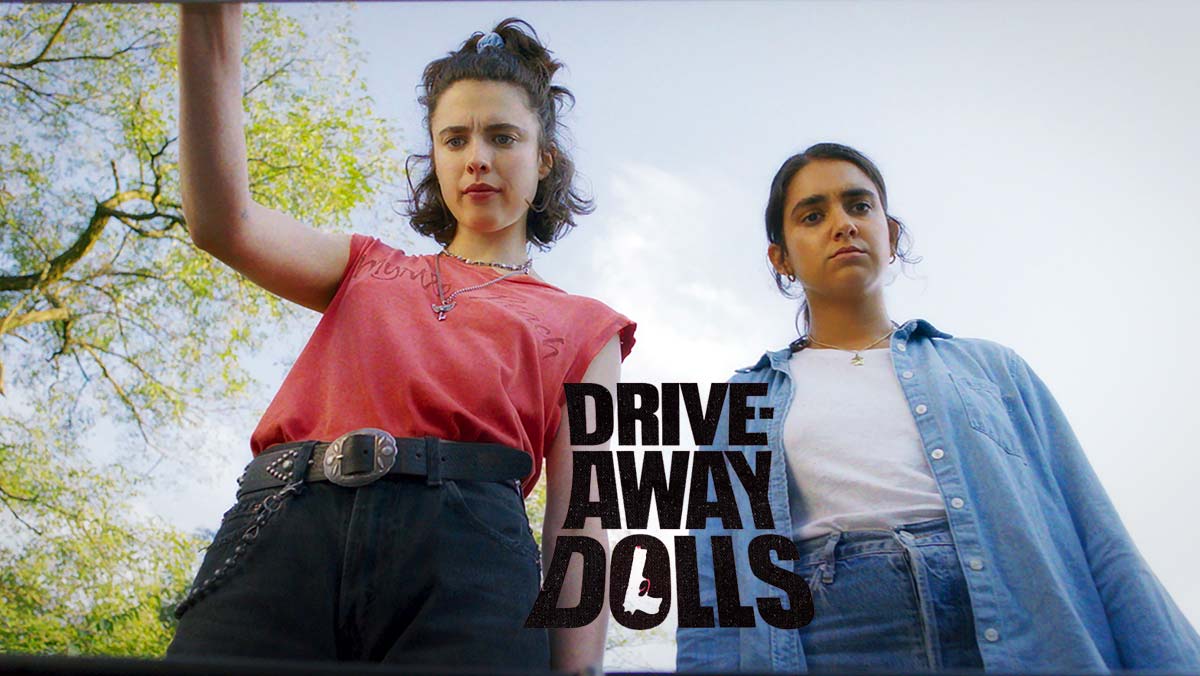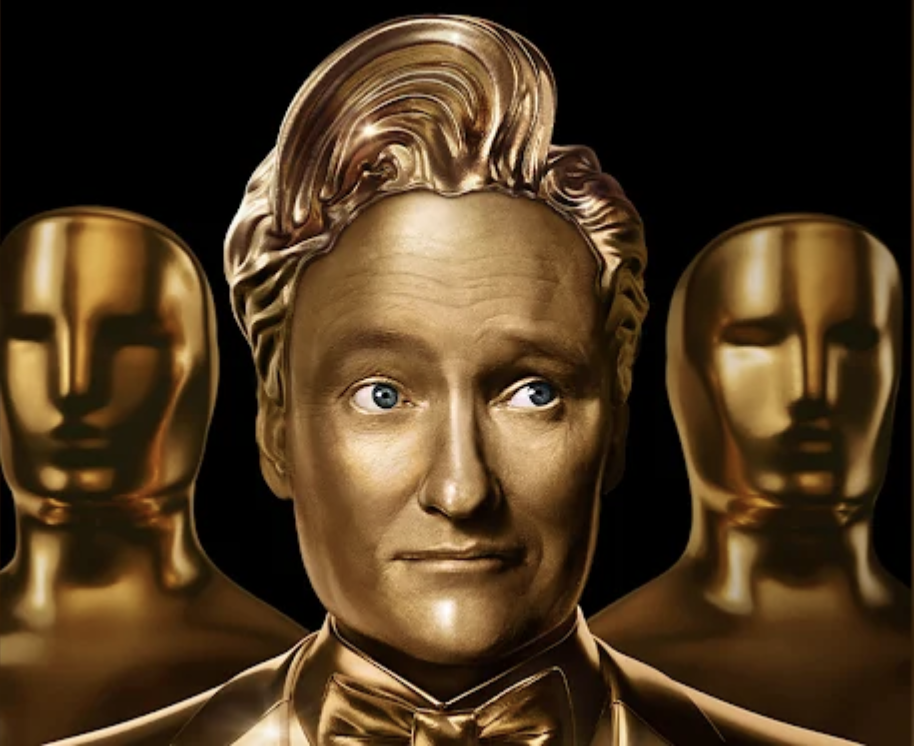I had seen no spoilers and read no reviews, but I knew one thing: Drive-Away Dolls is a lesbian road trip movie. As soon as I learned this premise, I picked up my phone and texted my girlfriend that we had to go to the movies this week. Needless to say, I was not disappointed — Drive-Away Dolls is hilarious, raunchy, and the fun, queer, campy film that we needed.
This is a film that is not meant to be taken seriously. If you enter this movie with those expectations, you will be disappointed. No, this is a movie that straps you in, says “get ready,” then immediately sends you off on a rollercoaster. Even just the transition between the first two scenes of the movie sets the tone for this wild ride — at first, an unknown man gets decapitated in an alleyway, then his screams blend into a woman’s from a very uncensored sex scene. For a second, I found this jarring, and I wondered, “What is this movie even about?” Then, when I found out that one of the main characters had been cheating on her partner, I wasn’t thrilled — would she even be likable? But I suspended my judgment, and I was glad I did.
I want to be clear; I don’t condone cheating under any circumstances. I don’t love that that is our first introduction to Jamie (Margaret Qualley) as a character, nor that her upset partner is treated as a laughing matter. No one really held Jamie accountable for her actions, and I don’t agree with that as a concept. That said, Jamie was one of the aspects that made this film so enjoyable. Her “screw it” attitude drives the plot forward, and her ability to incessantly make jokes kept me laughing throughout the film. I’m not saying that her infidelity should be excused, but she is certainly an entertaining character.
However, the most compelling character is the other protagonist, Marian (Geraldine Viswanathan). She is reserved and tight-laced, a perfect foil to Jamie. Viswanathan commits to this role so relentlessly; she perfectly captures Marian’s discomfort in social settings, her initial strict expectations for herself and others, and her arc of ultimately learning to let go of the reins and enjoy life freely. Marian’s dry humor is engaging, and her character development is touching.
As a whole, the movie is downright funny. It accomplishes a feat that I’ve seen not many movies achieve, in that it gets progressively more and more comical. Initially, I was certainly amused, but by the end I was cracking up. The plot continues to twist and turn in such unexpected, ridiculous ways that viewers can’t help but find humor in it. Sure, it’s not believable — none of the events would ever happen in real life as they do in the film — but that’s the joy of it. It is simply absurd. In that, it is captivating and farcical.
There are editing choices I don’t necessarily agree with, such as the weird, seemingly random psychedelic moments interspersed throughout the film. These are often used to show a transition between scenes, but viewers don’t come to understand what they actually represent until the very end of the film. Retrospectively, I get what the filmmakers were trying to do, but I think that the confusion throughout outweighs the sudden clarity at the end. There are ways in which they could have accomplished slowly revealing flashbacks about the premise of the story that aren’t so baffling. However, the film certainly embraces zaniness, so maybe that’s just a part of the aesthetic.
Those who read my review of Bottoms know that I liked the film, but I had some issues with it. Both my enjoyment and disappointment with that movie stemmed from the same place, that it is a mainstream queer film. I love that it exists and that it is intended for general audiences and features queer characters, but I don’t agree entirely with its actual plot premise. Drive-Away Dolls, however, is similarly radical in its existence, yet better executed. While the protagonists aren’t necessarily perfect examples of spotless morals, their flaws feel more original than those in Bottoms. In other words, their flaws are regular, human imperfections rather than based in negative queer stereotypes. In general, I am so excited to see more mainstream films featuring queer protagonists, specifically protagonists that are not just white gay men. It makes me genuinely happy to see characters in centralized films who I can relate to. Jamie and Marian don’t fit into societal standards of women, and they embrace that.
Despite the consistent lighthearted tone of the film, there are underlying political themes. Part of this lies inherently in its queerness and that Jamie and Marian are queer women who have a happy ending. It goes without saying that there is less queer representation in media than there should be, and so much of what does exist participates in the “bury your gays” trope, basically meaning that queer characters often meet tragic endings of some sort. I was so pleased at the end of the film when both Jamie and Marian drive off alive and well.
The other political aspects of this film were woven into its comedy. One scene that stands out is when the protagonists see the billboard that they are entering Florida. They have a moment of registering it before one of their tires immediately blows out and they have a moment of panic as they figure out how to pull off the highway. It is clear from the film that this timing is entirely on purpose. Furthermore, Senator Gary Channel (Matt Damon) is a caricature of U.S. politicians. He is bloated and arrogant. When Jamie and Marian meet with him and are basically blackmailing him, he asks who they are, and their answer is simply “Democrats.” Though politics aren’t the central point of the movie, I found that the underlying political themes worked to the film’s advantage. Drive-Away Dolls is funny in an absurd way, yet also funny in a way that’s very on the nose of what actually happens in our society.
Overall, Drive-Away Dolls is a successful piece. It is perfectly unserious; it doesn’t strive to be deeply profound or thought provoking, and that’s perfectly fine. It’s simply a fun film.














